

The idea of healthy meals that are affordable and locally sourced—and that taste great—might sound like a recipe that’s too tough to pull off. But for a UNC-Chapel Hill nutrition professor who founded startup Equiti Foods, frozen meal bowls are an avenue toward healthier outcomes for vulnerable populations and economic good for North Carolina’s small farmers.
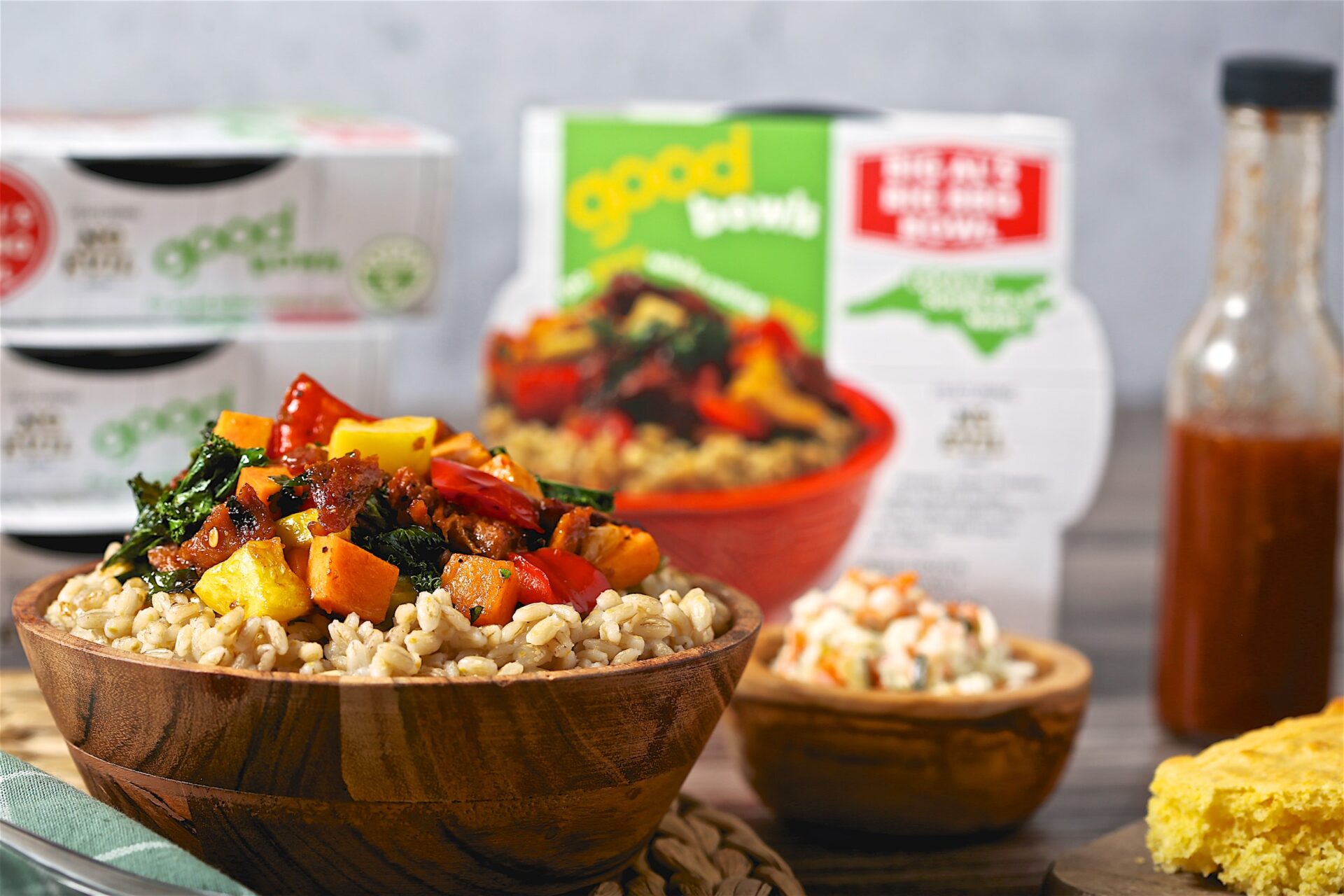
The scene in Alice Ammerman’s (DrPH) kitchen is part business venture, part public health experiment, part friendly culinary competition. That’s because Ammerman’s home also serves as a test kitchen for Equiti Foods, the startup company she founded. It’s where she and colleagues tinker with recipes for the company’s product called Good Bowls. The bowls are healthy frozen meals locally sourced and made in North Carolina. “People on our team come up with different ideas, and they come over to my house and we test different things—and I joke that I have the distinction of having created our most popular and our least popular recipe,” laughed Ammerman, the Mildred Distinguished Professor of Nutrition at UNC-Chapel Hill’s Gillings School of Global Public Health and director of the UNC Center for Health Promotion and Disease Prevention. “The most popular is the Chicken Burrito Bowl, and a lot of it came from doing taste testing and experimenting on my children over time. The least popular—although it’s hanging in there—is what we call the Wintry Mix.”
The Wintry Mix bowl epitomizes Equiti Food’s multi-faceted company mission: Provide everyone access to healthy, good-tasting and affordable food—while helping small local farmers sustain a living. “We’re thinking about farm sales in the winter when produce availability is a lot less,” said Ammerman. “There are some hardy crops you can use—cabbage, sweet potatoes, kale, onions—and I wanted to come up with a recipe that put them all together.”
The bowls come in a dozen flavors, ranging from Carolina BBQ Chicken and Sausage Pepper Grits to Big Al’s Big BBQ Bowl and Farmhouse Mac ‘N Cheese. The issues Equiti Foods addresses are as diverse as the ingredients in its bowls. “We’re trying to solve several problems at one time, such as nutrition security—which includes access to food and the fact that it’s healthy,” said Ammerman. “Preventing chronic disease, offering economic development opportunities for small farmers, and reducing food waste are things we work on, so our focus is multi-pronged.”
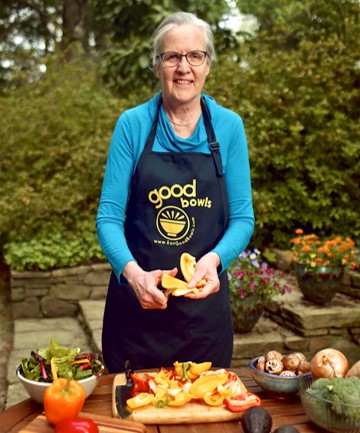

A longtime nutrition professor, Ammerman has seen the converging nature of food, health and economic challenges surface in her academic research. Those findings led her to launch Equiti Foods as a startup company in 2018. “I’ve focused on chronic disease and health disparities in low-income populations. And over and over again the problem comes up that people don’t have good access to healthy food that also tastes good and is culturally familiar,” she said. “So, our team has been working on what we call the Med-South Diet, which is the Mediterranean diet adapted for Southeastern taste preferences and food availability.”
Good Bowls’ Med-South frozen meals use generous amounts of fruits, vegetables and whole grains, while infusing healthy fats and oils. “We do taste testing and develop recipes that aren’t perceived as weird,” Ammerman said. “Our favorite compliment is when people say it doesn’t even taste healthy.” Ammerman faces the challenge of offering affordable, locally sourced and tasty food. Achieving this goal involves strategic partnerships, such as the one with Weaver Street Market, which prepares the bowls at its Food House Market in Hillsborough. Equiti Foods taps into Weaver Street’s network of local farmers and producers in North Carolina. This enables Equiti Foods to procure most Good Bowls ingredients within the state, promoting local employment while maintaining high standards of quality and flavor.
Customers can buy Good Bowls directly at all four Weaver Street Market locations in Carrboro, Chapel Hill, Hillsborough and Raleigh as well as at the Durham Co-op Market. The bowls are also available for purchase on the Good Bowls website—five at a time or via a subscription model—and are delivered locally to people who live in the five-county area surrounding Chapel Hill. Online purchasing and delivery are also available via The Produce Box and Ripe Revival.
As part of a strategy aimed at helping students eat healthier, the bowls are also available at markets, cafes and vending machines on several North Carolina university campuses, including UNC-Chapel Hill. However, subsidized markets have emerged as avenues with the greatest potential for getting Good Bowls to people who need them most, Ammerman said.
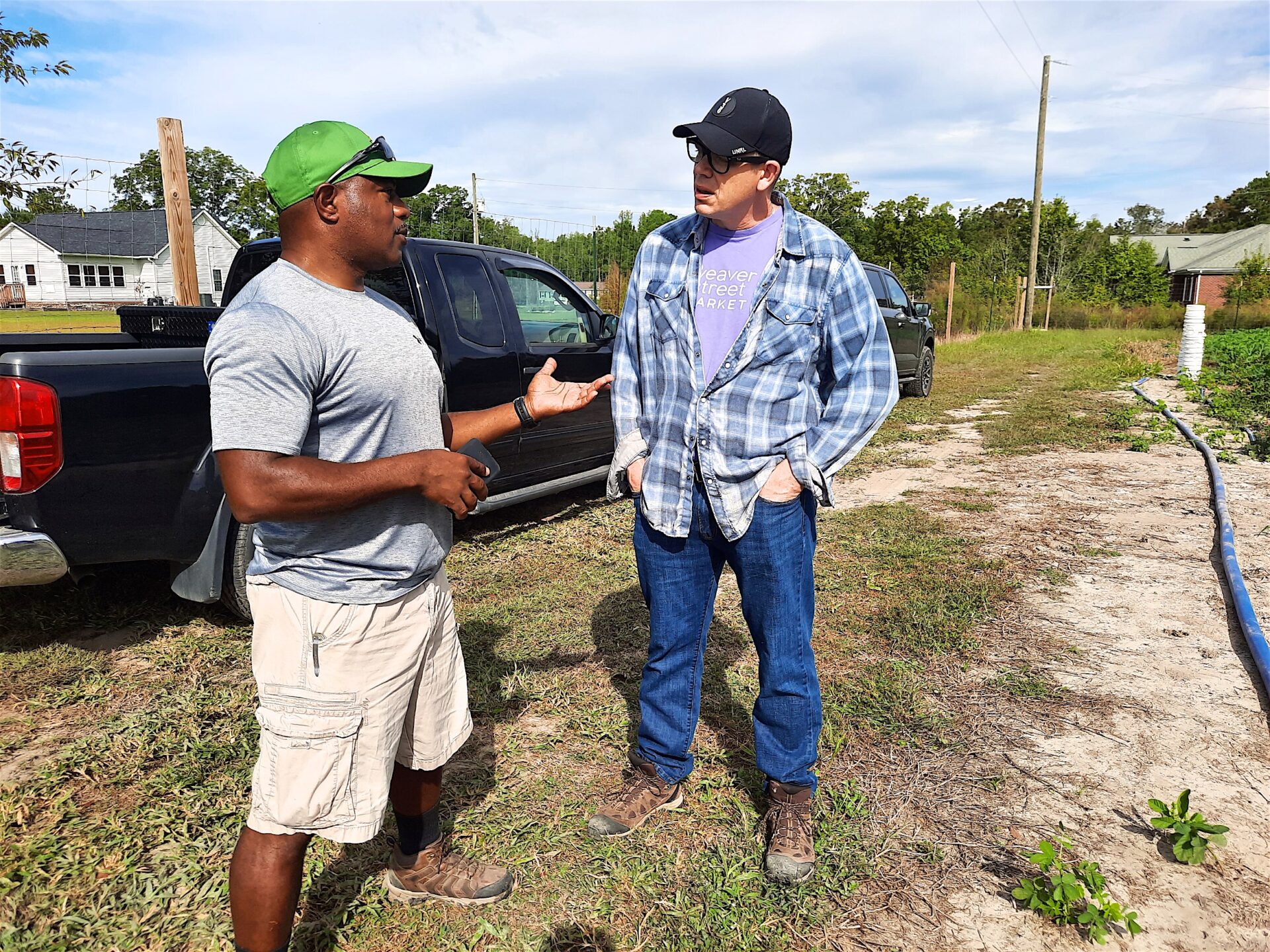
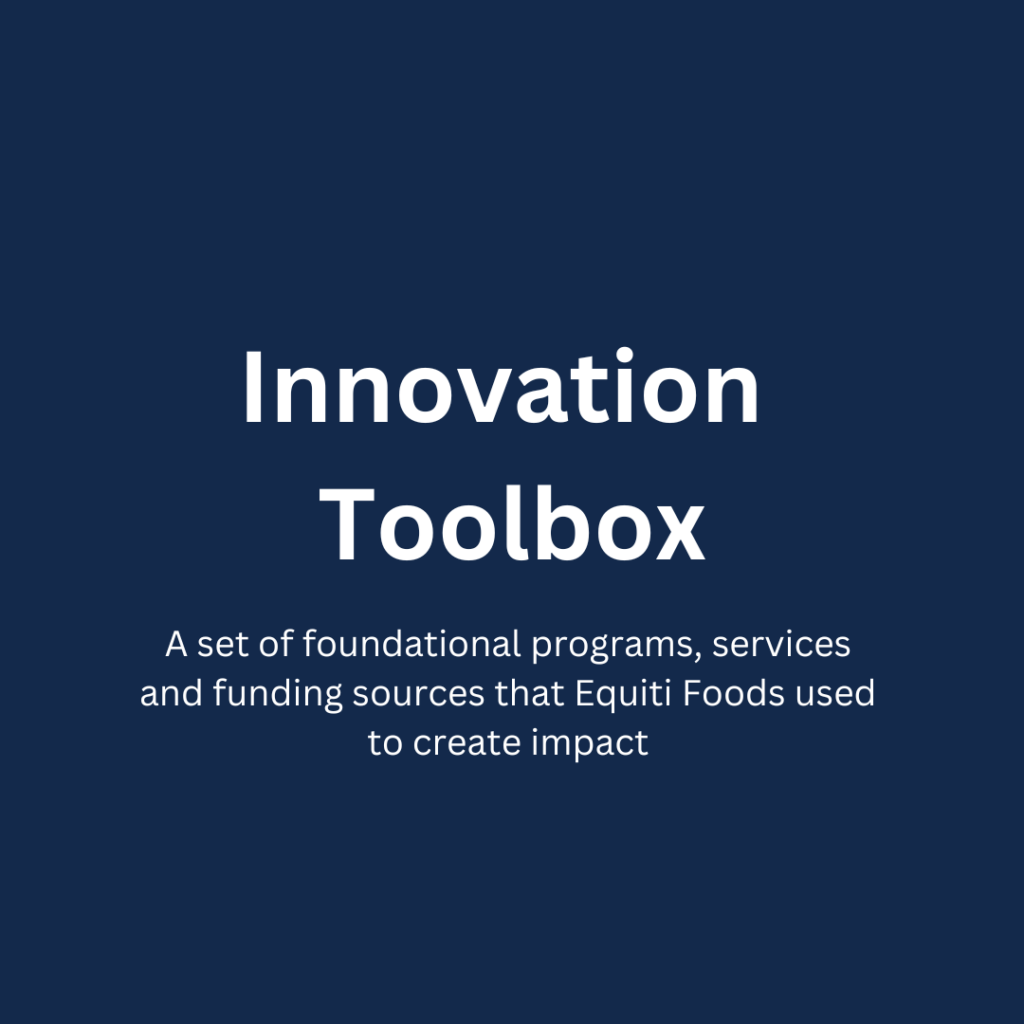
In addition to personal funding from Ammerman and her husband, Equiti Foods’ earliest funding came from the University’s C. Felix Harvey Award. “The Innovate Carolina team encouraged me to apply—and we ended up getting a $75,000 grant, which was wonderful because it helped us launch the company.”
Most of the company’s funding has come from federal SBIR and STTR grants. In fact, Ammerman said access to those federal funding dollars drove decisions about the company’s original structure. “I chose to start it as a for-profit because that gives you access to federal SBIR and STTR grants for small businesses,” she said. “People are sometimes surprised that we’re a for-profit, because they think we don’t really do the kinds of things that a lot of for-profits do. But I teach a public health entrepreneurship course, and one of the things we emphasize is that it’s not the case that nonprofit means ‘good’ and for-profit means ‘bad.’ People tend to think that way, but there are plenty of stories of the opposite.”
Ammerman sees the greatest revenue potential beyond retail and grants. “We’ll still do retail because it helps our brand, but we’re transitioning away from it as our primary focus,” she said. “We’re moving toward reimbursable models because they generate more revenue and are closer to our mission.”
With production of the bowls outsourced primarily to partner Weaver Street Market via its Food House facility in Hillsborough, Equiti Foods team members work remotely—until they need to gather at the company’s de-facto home base: Ammerman’s house. “We’re not quite like a startup working out of the garage, but we’re close,” she said. “We call it GBHQ—Good Bowls Headquarters.”
Most of the team’s physical presence involves getting the bowls out to those who need them and meeting people where they are, whether through restocking campus or worksite vending machines or bringing Good Bowls to customers’ front doors. “With our home delivery, people can order online and we deliver to them within the local region,” she said.
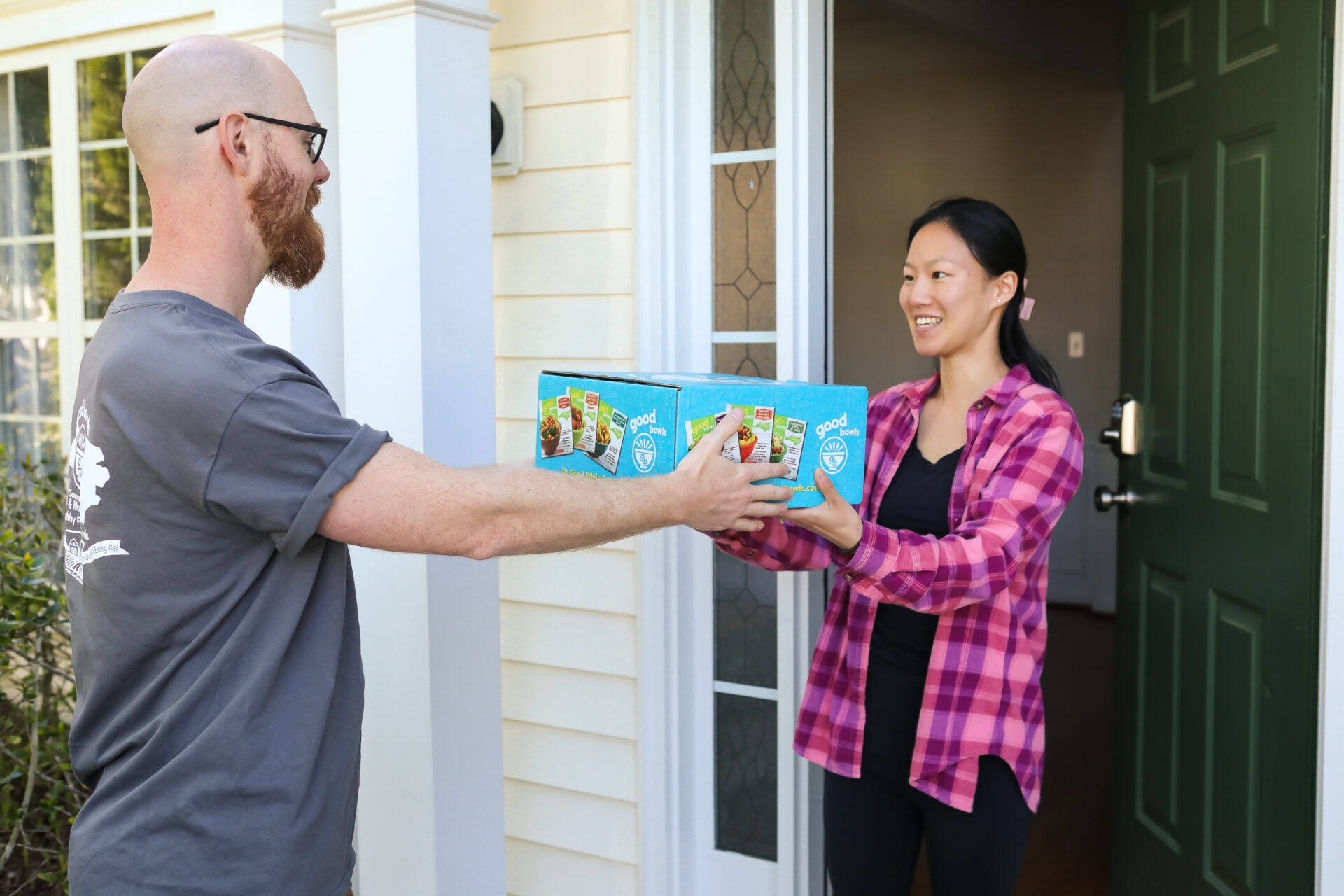
Originally driven by research interests, Ammerman and her students pioneered Equiti Foods. As the company expanded, Ammerman transitioned to a senior advisor role. The growth allowed hiring a critical operations manager through grant funding from the Healthy Opportunities Pilot program.
As a small organization, Equiti Foods benefits from team members who can wear a variety of professional hats. Such is the case with the Healthy Opportunities Pilot manager, whom Ammerman said has culinary and farming skills and is “well organized and connected.” The company’s marketing person “does everything: marketing, website, drives the van and has gotten very involved with doing a lot of the recipes.”
Staffing needs evolved over time. “With growth comes lots of operations and the need to organize so many different things, from the production of the meals to distributing them,” she said. “As we got more grants, trying to manage them all also became challenging, requiring specialized skills.”
She said that she also hopes to be able to engage more volunteers who are passionate about Equiti Food’s mission. “As a for-profit company, we are not really allowed to have a lot of volunteers, whereas a lot of the other organizations that do this kind of work are nonprofits, and they are heavily dependent on volunteers,” she said. “So we are working on starting a nonprofit arm, which will give us a lot more flexibility and open up a lot more opportunities for volunteers and different funding streams.”
A researcher without prior entrepreneurial experience, Ammerman values insights from private industry and startups. For instance, David Yates, a retired business executive from Nestle and who now advises Equiti Foods, plays a crucial role. Ammerman’s connection with Yates, unexpected from her days as a Duke University student participating in the Nestle boycotts of the 1970s, is now an invaluable member of the team. Yates advises her on business dynamics, emphasizing profit areas and financial considerations. Ammerman said, “David has been a wonderful advisor about the world of business, keeping me level set.” Ammerman said members of the Carolina Angel Network have also reached out over the years with helpful business advice.
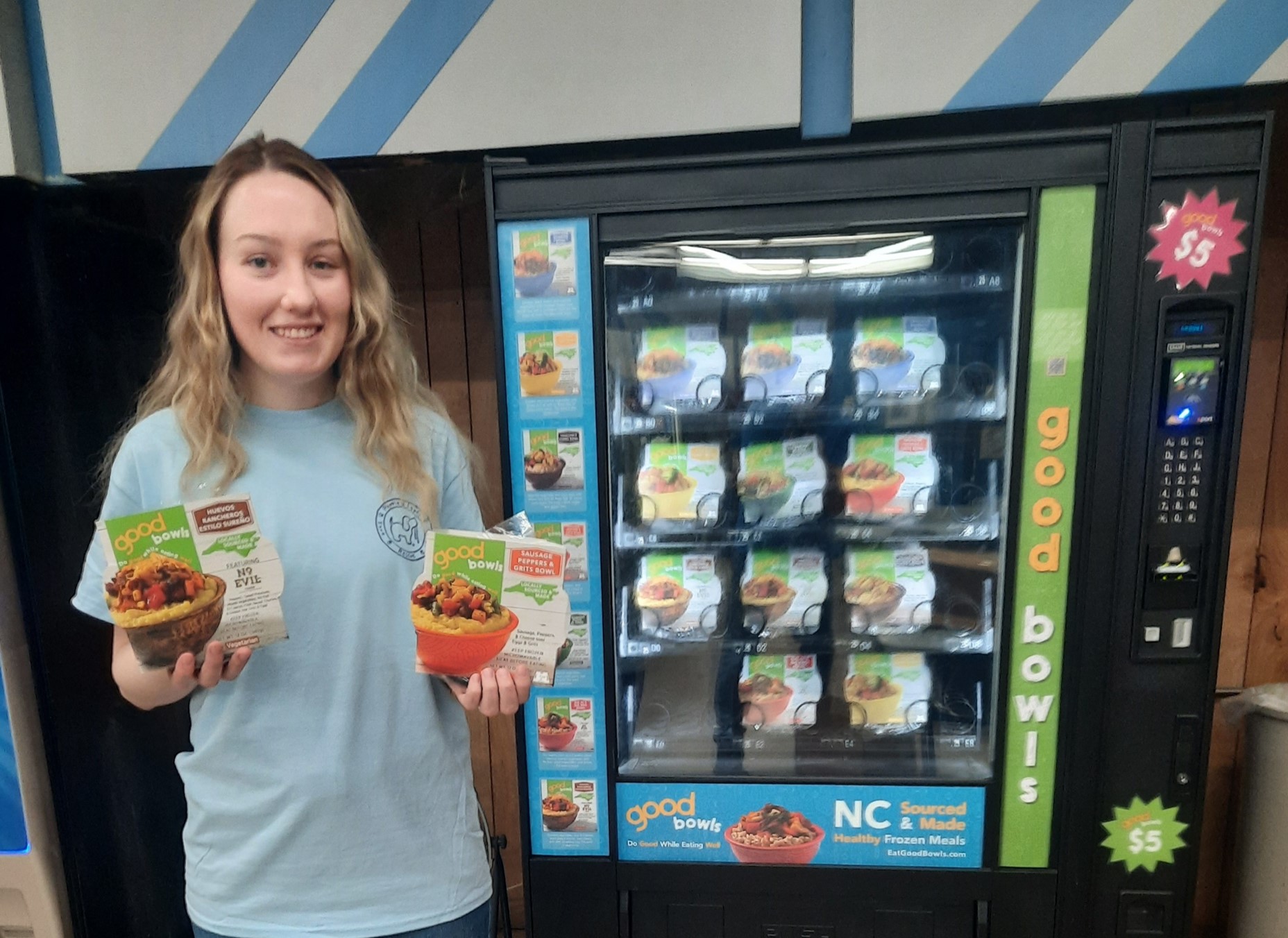
Ammerman also credits the StartupUNC course taught by Don Rose, an adjunct instructor at the Kenan-Flagler Business School and former director of Innovate Carolina’s KickStart Venture Services team. “The course is set up in segments where they see if you’re ready to move on,” said Ammerman. “Finances and spreadsheets aren’t my favorite things, so I forced myself to learn more about those during the course because they’re important parts of running a company. The whole notion of the importance of marketing came into play in that course, too.”
KickStart helped Equiti Foods make valuable connections to professional service providers. “Through KickStart, we connected with InteliSpark, a company that helps you write grants,” she said. “Now that we’ve worked with them for two or three grants, InteliSpark has gotten to know us and writes a lot of the text based on earlier grants, so there are fewer bureaucratic barriers. They’ll also give us advice by looking through some of the things we’re doing and say, ‘That’s not going to work, but maybe this will.’”
Ammerman is excited about the many challenges and opportunities that lie ahead. With increasing interest in “Food is Medicine” and medically tailored meals among insurance companies and social service organizations, the opportunities for Good Bowls are growing rapidly.
Want to learn more about the entrepreneurial journey of Equiti Foods?
Mark your calendar for Thursday, April 4 from 4:30-6:30 p.m. and make plans to hear Dr. Alice Ammerman, founder of Equiti Foods, speak at Innovate Carolina’s Founders Forum event. The event will be held at the Innovate Carolina Junction. The Founders Forum is a series of founder-led talks held at the Innovate Carolina Junction where startup leaders delve into tales of triumphs and missteps, sharing their victories and openly discussing their pitfalls.